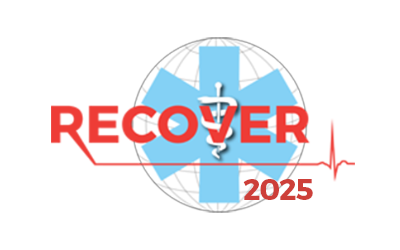Data fine 15/02/2025
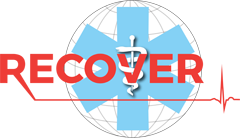
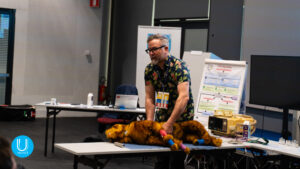
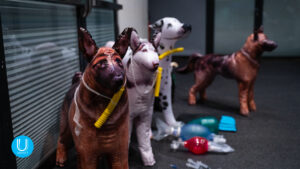
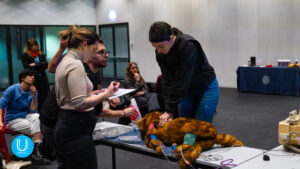
HOW DO WE BEST TREAT ANIMALS IN CARDIOPULMONARY ARREST?
Evidence-based veterinary CPR guidelines published by the RECOVER Initiative in 2012 aimed at maximizing patient survival after cardiopulmonary arrest led to the official veterinary CPR certification process approved by the American College of Veterinary Emergency and Critical Care. This course will teach the concepts and techniques of RECOVER Basic Life Support (BLS) and Advanced Life Support (ALS).
The certification process consists of an online course followed by on-site training at Unisvet XIX National Conference (14-15 February 2025, HOTEL MELIÀ – Via Masaccio 19, Milano).
Because of this, participants must have successfully completed the RECOVER online BLS and ALS courses available at recoverinitiative.org. These courses are included in the registration fee but need to be completed prior to the in-person training at the conference. After the subscription process trought the Unisvet website, you will receive from Recover the link to access to the online lessons.
Successful completion of this course grants certification as a RECOVER BLS and ALS Rescuer.
Human medical professionals certify in human CPR.
Veterinary medical professionals should certify themselves in veterinary CPR!
TAKE THE CPR CERTIFICATION DURING THE
UNISVET XIX NATIONAL CONFERENCE!
HOTEL MELIÀ – Via Masaccio 19, Milano
14-15 February 2025
Complete the online course and then come to the Unisvet XIX National Conference to run the Workshop.
Successful completion of this course grants certification as a RECOVER BLS and ALS Rescuer.
MAX 32 PARTICIPANTS
Participants will be divided in groups of 8.
We will notify you of the group to which you’ll belong at the closing of registration, by January 9, 2025
On-site training lectures will be held by Dr. Tommaso Rosati
ONLINE COURSE + ON-SITE TRAINING FEE: € 400 + VAT
within January 9th 2025 unless SOLD OUT
DISCOUNTED STUDENT/ TECHNICIAN/ NURSE FEE: € 325 + VAT
within January 9th 2025 unless SOLD OUT
Online courses – Language: English
Duration: 5 hours
Total Modules: 5
RACE Credits: 5.0
NY Credits: 5.0
CPR course that teaches the essential concepts needed to maximize outcomes in patients with cardiopulmonary arrest. When a cardiopulmonary arrest occurs in your practice, having a well-trained team ready to provide high-quality CPR may be the difference between life and death for your patient.
This course teaches the evidence-based Basic Life Support (BLS) guidelines developed by the Reassessment Campaign on Veterinary Resuscitation (RECOVER) Initiative. It is the only BLS course endorsed by the Veterinary Emergency and Critical Care Society (VECCS), and is the only course that provides official certification in veterinary CPR through the American College of Veterinary Emergency Critical Care (ACVECC).
Duration: 3.5 hours
Total Modules: 3
RACE C.E. Credits: 3.5
NY Credits: 3.5
Topics include use and interpretation of important monitoring equipment, how to diagnose the ECG arrest rhythm, and drug therapies and other advanced interventions that can improve the likelihood of saving a life.
After completing both courses, you’ll have an understanding of the entire CPR algorithm.
These comprehensive and highly engaging courses include videos, assignments, and quizzes covering the latest in CPR techniques.
These courses are peer-reviewed and offer official certificates of completion by the American College of Veterinary Emergency and Critical Care (ACVECC). They are endorsed by the Veterinary Emergency and Critical Care Society (VECCS), and teach the most current, evidence-based guidelines developed by the Reassessment Campaign on Veterinary Resuscitation (RECOVER) initiative, making them the gold standard in veterinary CPR training.
On-site training program – Language: Italian/English*
|
BLS and ALS rescuer certification – GROUP 1 ( 8 participants) |
|
| 08:30 – 8:45 | Welcome |
| 08:45 – 10:00 | BLS Training |
| 10:00 – 11:00 | BLS Assessment and Certification |
| 11:00 – 12:15 | ALS Scenarios, pictures at the end |
| 12:15 – 13:30 | ALS Assessments and Certification |
| 13:30 | Break |
| BLS and ALS rescuer certification – GROUP 2 ( 8 participants) | |
| 14:00 – 14:15 | Welcome |
| 14:15 – 15:30 | BLS Training |
| 15:30 – 16:30 | BLS Assessment and Certification |
| 16:30 – 17:45 | ALS Scenarios, pictures at the end |
| 17:45 – 19:00 | ALS Assessments and Certification |
|
BLS and ALS rescuer certification – GROUP 3 ( 8 participants) |
|
| 08:30 – 8:45 | Welcome |
| 08:45 – 10:00 | BLS Training |
| 10:00 – 11:00 | BLS Assessment and Certification |
| 11:00 – 12:15 | ALS Scenarios, pictures at the end |
| 12:15 – 13:30 | ALS Assessments and Certification |
| 13:30 | Break |
| BLS and ALS rescuer certification – GROUP 4 ( 8 participants) | |
| 14:00 – 14:15 | Welcome |
| 14:15 – 15:30 | BLS Training |
| 15:30 – 16:30 | BLS Assessment and Certification |
| 16:30 – 17:45 | ALS Scenarios, pictures at the end |
| 17:45 – 19:00 | ALS Assessments and Certification |
* The language of the lessons will depend on the nationality of the participants.
The speaker may speak both English and Italian
WHY CERTIFY?
Recognized
RECOVER CPR is the only official veterinary CPR certification recognized by the American College of Veterinary Emergency and Critical Care (ACVECC) and the Veterinary Emergency and Critical Care Society (VECCS), and is a non-profit program.
Be prepared
RECOVER Certified BLS Rescuers® and RECOVER Certified ALS Rescuers® are prepared for the ultimate emergency through the knowledge and skills required to give their patients the best chance of survival.
Evidence based
Methods supported by evidence reviewed by over 100 experts in the field are boiled down to key points and is made practical to apply.
A better team
Removes the stress and doubts of CPR by making it systematic and organized, leading to better team satisfaction. Communication and trust are improved by empowering the team.
WHAT IS THE RECOVER INITIATIVE?
Reassessment Campaign on Veterinary Resuscitation (RECOVER)
The initiative was spearheaded by co-chairs Dr. Daniel Fletcher and Dr. Manuel Boller with the following goals:
- To facilitate an evidence review of the current literature on veterinary cardiopulmonary resuscitation (CPR)
- To derive a draft set of clinical guidelines for veterinary CPR based on the evidence review
- To collate and incorporate feedback from the veterinary community at large and develop a set of consensus CPR guidelines
- To widely disseminate these consensus, evidence-based veterinary CPR guidelines
Through the efforts of over 100 veterinary specialists, an evidence-based veterinary CPR guideline was created and made available. The RECOVER initiative directs its efforts at regularly updating the clinical guideline, providing effective training and certification in a standardized method of performing veterinary CPR, and guiding research in the area of veterinary resuscitation.
The RECOVER initiative now functions through three main committees; 1) Guideline, 2) Education, and 3) Research.
The RECOVER Initiative is a non-profit, volunteer-based program within ACVECC and VECCS dedicated to conducting high-quality education, evidence search, and guideline creation.
In collaborazione con



